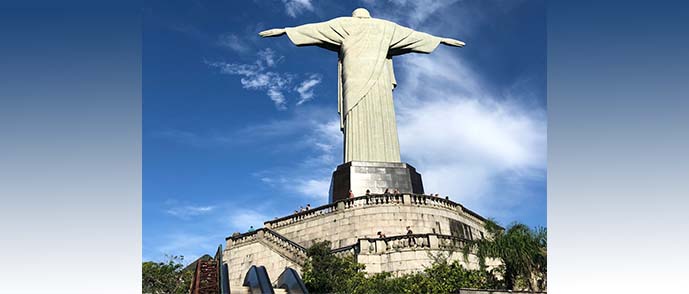Porto Alegre, Brazil, January 2021 – Brazil is with open arms to welcome migrants of all nationalities. The New Migration Law 13.445, drafted based on the federal constitution and human rights, is a step forward in Brazilian legislation on migration by opening up borders, welcoming migrants, and creating new opportunities in the labor market.
Contrary to what many people think and say, Brazil receives hundreds of migrants every day because the New Migration Law has opened the borders for different nationalities. According to data from the International Migration Observatory – OBMigra, Brazil received 774,200 immigrants in 2019, but it is estimated that it currently has more than one million migrants. For example, at CIBAI Migrações [1] in the city of Porto Alegre in the State of Rio Grande do Sul, Brazil, 36 nationalities were supported in 2020, and in 2019 that number was 52. It is estimated that the municipality has 40 thousand migrants.
When migrants arrive by air, sea, or land, they are greeted by Brazilian authorities and forwarded for documentation. After a few days, they receive the documents and with that, migrants have the same rights as Brazilian citizens, minus the right to vote and be elected (at the beginning). Not everything is a sea of roses. We still have to improve a lot in our reception, because most of the migrants fall into invisibility, due to late payment in the renewal of documents and the consequences of unemployment.
Many Brazilians think that migrants come to steal their jobs, but the great truth is that they come to join the labor force, and also, they come to enrich society with the new culture, with the mentality of winners, with a new way of working, doing and living, with the creation of new sources of work with specific companies. The integration process is well advanced with the federal government’s program together with IOM and UNHCR to assimilate migrants in the different states of the country, but also, we cannot ignore that migrants suffer xenophobia, indifference, and exploitation. In this way, the work of civil society institutions, such as CIBAI Migrações, has the task of sensitizing Brazilians and influencing politically (advocacy) in different spheres of public power and the private sector.
Migrants need initial help because they arrive in the country with limited financial resources, but what they need most is work. In this sense, the help offered by CIBAI Migrações is outstanding. In 2020, 5,330 bags of food were donated, 4,710 personal hygiene and cleaning kits, 7,600 masks, 1,161 liters of milk and 34,160 diapers for children, 156 blankets, 2,600 migrants benefited with clothing, 1,575 people received help with documentation, 12 families were benefited with money for rent and many more services and aids offered to migrants. Even in difficult times in 2020, due to the Covid19 pandemic, we had 13,311 people supported. Brazil receives, welcomes, and integrates migrants because they have institutions and people of Good Will who work tirelessly to do good for people.
God is good all the time! God is good all the time!
Fr. Anderson L Hammes, c.s.
Parish priest and Director
[1] The Italo-Brazilian Center for Assistance and Instruction for Migrations – CIBAI Migrações – also known as Mission Pompeya, was founded in 1958 by the Missionaries of Saint Charles – Scalabrinians – with the Mission of welcoming, protecting, promoting, integrating, and celebrating with migrants. The Institution receives, welcomes, and integrates migrants without distinction of ethnicity, religion, politics, gender identity, color, or social class. All the services are free. CIBAI Migrações is a member of the Scalabrini International Migration Network (SIMN).


